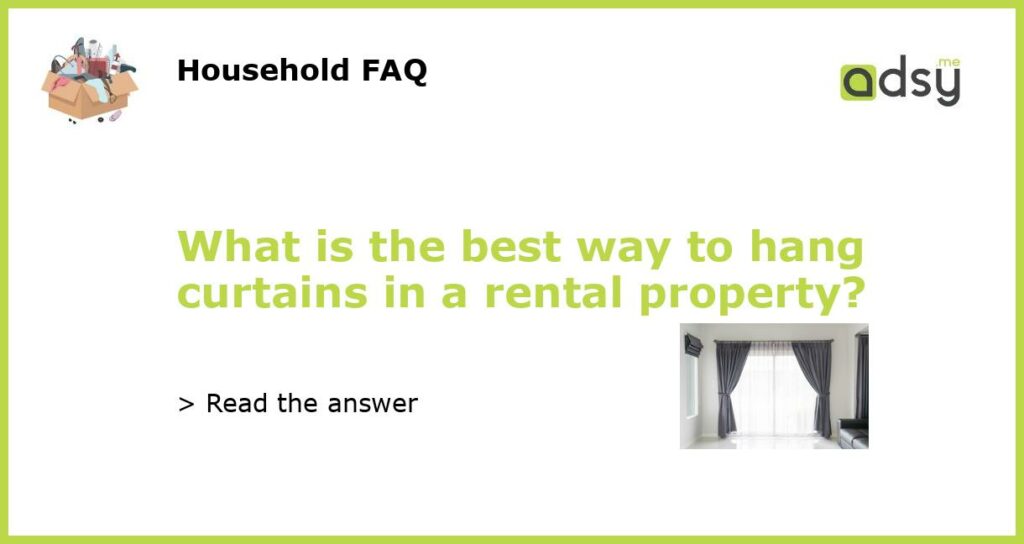Why hanging curtains properly in a rental property is important
When you move into a rental property, it’s important to make it feel like a home. One way to do this is by hanging curtains. Curtains can add privacy, block out light, and even help with insulation. But because it’s not your own property, you want to make sure you don’t cause any damage. Here’s the best way to hang curtains in a rental property.
Use tension rods for a damage-free option
The easiest and most damage-free way to hang curtains in a rental property is by using tension rods. Tension rods don’t require any hardware or drilling, making them a great option for apartments or any space where you can’t put holes in the wall. Simply measure the distance between your walls and insert the tension rod into place. Then, hang your curtains using clips or loops.
Consider using command hooks and strips
If you have a slightly heavier curtain or want a more secure option, consider using command hooks and strips. These are designed to hold up to a certain weight and can be easily removed without any damage to the wall. Make sure to follow the instructions carefully and use the right size hook and strip for your curtain weight.
Avoid using nails or drilling into the wall
It’s best to avoid using nails or drilling into the wall when hanging curtains in a rental property. This can cause permanent damage and may result in losing your security deposit. If you absolutely must use screws or nails, make sure to get permission from your landlord first and patch up any holes before moving out.
Invest in tension rods or command hooks for a worry-free option
To avoid any damage or potential loss of your security deposit, it’s best to invest in tension rods or command hooks and strips when hanging curtains in a rental property. These options are easy to use and won’t cause any permanent damage to the walls. Plus, you can take them with you when you move out and use them in your next home.






